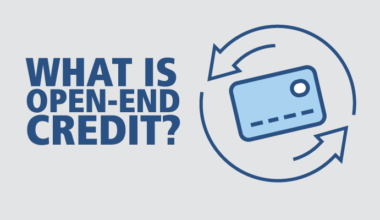In-house financing occurs when a supplier offers the purchaser the option of credit on his own or through a single third-party financier to acquire the items. This makes it easier for the buyer to purchase the product because they can pay in monthly installments. We’ll explain how this type of financing works in detail in this chapter. We’ll also explain how you can get in-house financing from car dealerships.
What is In-House Financing?
In-house financing is when a firm gives a loan to a consumer so that they can buy its goods or services. It eliminates the firm’s dependency on the banking sector to provide funds to the client in order for the transaction to be completed.
In House Financing Explained
Many stores offer in-house financing to help customers with the shopping process. To service a loan for their consumers, retailers must have an established lending company within their organization or partner with a single third-party credit provider. Consumers profit from in-house lending since they may often acquire a loan through a firm that they would not have been able to obtain through standard financing methods, such as a bank.
In House Financing and The Automobile Industry
Because its business relies on purchasers taking out auto loans to complete the purchase of a vehicle, the automobile sales sector makes extensive use of in-house financing. By accepting more consumers, a company can complete more sales by offering in-house financing to car buyers.
Automobile dealers also have the advantage of choosing their own underwriting rules, which can occasionally include a larger number of customers by allowing individuals with weaker credit scores. In many circumstances, these lending platforms will accept applicants who would be turned down for a loan by banks or other financial intermediaries. Equipment manufacturers, appliance stores, and e-commerce retail stores may also provide in-house financing.
Ford Financial Services
One of the most well-known in-house vehicle financing groups is Ford Credit. Ford Credit teamed with AutoFi in January 2017 to make car buying and financing easier using technology that allows buyers to shop online for their car and auto loan.
Ford clients may shop online through Ford dealer websites, buy, and finance their cars using this innovative point-of-sale platform. This type of customer experience allows car buyers to spend less time at the dealership while also allowing Ford to complete transactions more quickly.
Although store credit cards offer higher interest rates, the benefits may be advantageous for frequent consumers.
How Does In-House Car Financing Work?
In-house car financing occurs when a car dealership lends a portion of the purchase price to a car. This offers the dealer an additional income stream from the customer’s interest payments while allowing the consumer to purchase a car that they would not have qualified for otherwise.
However, because in-house lenders are smaller, they may not be able to compete with large banks or credit unions on interest rates. Before contemplating an in-house loan, it may be worth visiting different institutions to compare rates.
When a firm or seller has a strong credit-providing facility or works with a single credit provider to finance its clients, they use in-house financing. It makes both the seller’s and the customer’s jobs easier.
If a customer purchases a product but does not have the funds to pay for it, the product cost is divided monthly based on the plans they select, and credit is extended to them. However, because these loans are granted at the seller’s risk, there would be few formalities or time to complete them.
Example of In-House Financing
Consider Mr. Ben, who owns a branded electronics dealership and sells everything from televisions to washing machines. A consumer wants to buy a $100 television but has no money for a down payment or an initial payment and is not qualified for loans from banks or other financing organizations.
Mr. Ben here offers Mr. Z an in-house financing option in which he may pay the money back over 12 months at a 5% interest rate per month, and the procedure is so straightforward that he can get the loan in minutes.
In this case, the loan is issued at the seller’s discretion, and the payment conditions and interest rate are negotiated with the seller; thus, it is known as in-house financing.
Is bank financing or in-house financing preferable when purchasing a car?
There is no clear victor between bank and dealer financing, and it may be worthwhile to compare interest rates from both before making a decision. A car loan from a bank represents the “real” interest rate, whereas dealers may impose a markup or additional costs for financing a car. Dealers, on the other hand, specialize in auto loans and may be able to obtain lower rates for newer cars. Some dealerships even offer 0% financing for the first year on a new car.
Why Do Stores Provide In-House Financing?
Many retail establishments provide in-store financing or store credit cards as an additional source of revenue from their clients. While the interest rates are typically higher than on standard credit cards, they may provide prizes or privileges that are valuable to frequent consumers.
The Benefits of In-House Financing
If a customer has a poor credit score or no credit history, he may be unable to obtain a loan from a bank or other financing organization. They can make advantage of this internal financing option.
If a financing firm takes too long to complete and the seller requires the product right now, he might select this option.
This allows the seller to attract more clients. This is because there will be fewer procedures and the loans will be processed more quickly.
The purchaser is not required to make any down payment, and the total sum can be spread out over a few months. Thus, reducing their financial strain.
The buyer has the ability to negotiate payment terms, interest rate, and down payment with the seller.
Advantages
- Provides customers with immediate loans rather than the time-consuming process.
- It is beneficial for people who are unable to obtain loans from banks or other financial organizations. After all, it is flexible in terms of granting loans to customers.
- It makes no difference whether you pay a down payment or not.
- The customer will be maintained by the seller and will purchase from them again.
- Customers that choose the seller’s in-house financing solutions, which banks cannot provide, receive discounts.
- When the customer completes the loan, his or her credit score improves.
- Customers can negotiate financing rates, down payments, discounts, and other terms with the seller.
Disadvantages
- The seller sets the interest rate, which is higher than that set by banks and other financial institutions.
- The buyer may have to pay extra because the pricing includes a higher interest rate.
- As the loan is granted at the seller’s discretion, he must also evaluate if the consumer pays his dues correctly.
- In other circumstances, such as a used car dealership, the vendor sells only used products for in-house financing.
In-House Financing Car Dealerships
In-house financing dealerships, sometimes known as “buy-here, pay-here” dealerships, provide financing to car buyers directly. Because these dealerships finance car purchases, they do not need to obtain clearance from a bank or other lender before granting your car loan. Loan approval standards are imposed by buy-here, pay-here dealerships.
This may appear to be a much simpler process than obtaining a car loan. The disadvantage? You’ll almost certainly end up paying significantly more in interest if you buy a car this way.
The advantages of in-house financing dealerships
People with poor credit or little to no credit history may be unable to obtain a typical vehicle loan. They may also lack the funds required for a car down payment.
In-house financing dealerships, on the other hand, make loans independently and at their discretion, without the credit, and down payment limitations that regular auto loans may demand. This allows some people to obtain an auto loan when they would not otherwise be able to.
The Disadvantages of In-House Financing Dealerships
While less stringent lending criteria may get you the vehicle you need, financing through a “buy-here, pay-here” dealership has some significant drawbacks.
For starters, you will almost certainly pay a greater interest rate than you would with a typical car loan. The loan could even be a precalculated interest loan, which can be a huge financial trap.
Buy-here, pay-here car dealerships may also charge more for the cars they sell. Because you can only utilize in-house financing for cars on that dealership’s lot, you’re forced to buy from that dealer’s inventory. This means you won’t be able to compare prices.
Furthermore, buy-here, pay-here dealerships can lend as much as they like and set their rates appropriately. This means you could wind up in considerably more debt than your car is worth, effectively placing you “upside down” on your car loan from the start.
Are in-house financing loans notified to credit reporting agencies?
It is up to buy-here, pay-here car dealerships whether or not to record your loan to consumer credit bureaus. If you want your payments reported to help you boost your credit, make sure to ask before you buy.
Another potential disadvantage: While in-house financing dealerships may not verify your credit, some will compensate for the risk of lending through other channels. Installing a gadget in your car allows them to disable it or more easily repossess it if you miss a payment.
Where can I discover in-house financing dealerships?
It is normally not difficult to locate an in-house financing dealership. You’ve undoubtedly driven past quite a few of them. Look for signs that read “buy here, pay here,” “no credit necessary,” “no credit — no problem,” or “no credit check required.” A quick web search for buy-here, pay-here, or in-house financing car dealerships, with the name of your city, can also suffice.
Before you go to a dealership, phone and inquire if they have in-house financing that might match your needs. Also, consult with friends or family members who may know about specific car lots to avoid.
What Is The Lowest Credit Score You Can Have To Finance a Home?
The average credit score required for most mortgages is around 620. However, government-backed mortgages, such as FHA loans, often have lower credit requirements than regular fixed-rate and adjustable-rate mortgages (ARMs).
In Conclusion,
Though in-house financing has numerous advantages, such as reduced paperwork and flexibility with payment arrangements, it also has drawbacks. A customer must carefully select the payment terms and interest rate to benefit from such financing choices.
In House Financing FAQs
Do you build credit with in house financing?
Yes, you can build credit with in house financing
Which dealership is easiest to get financing?
Auto Credit Express is the easiest dealership to get financing.






